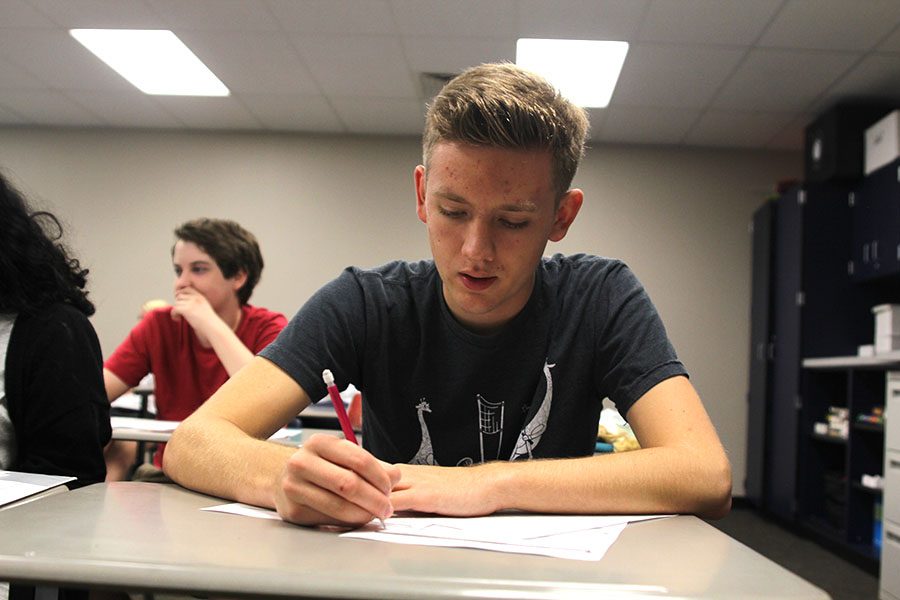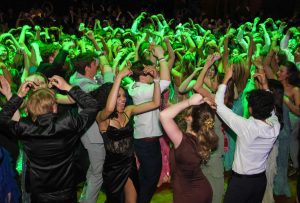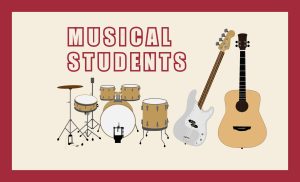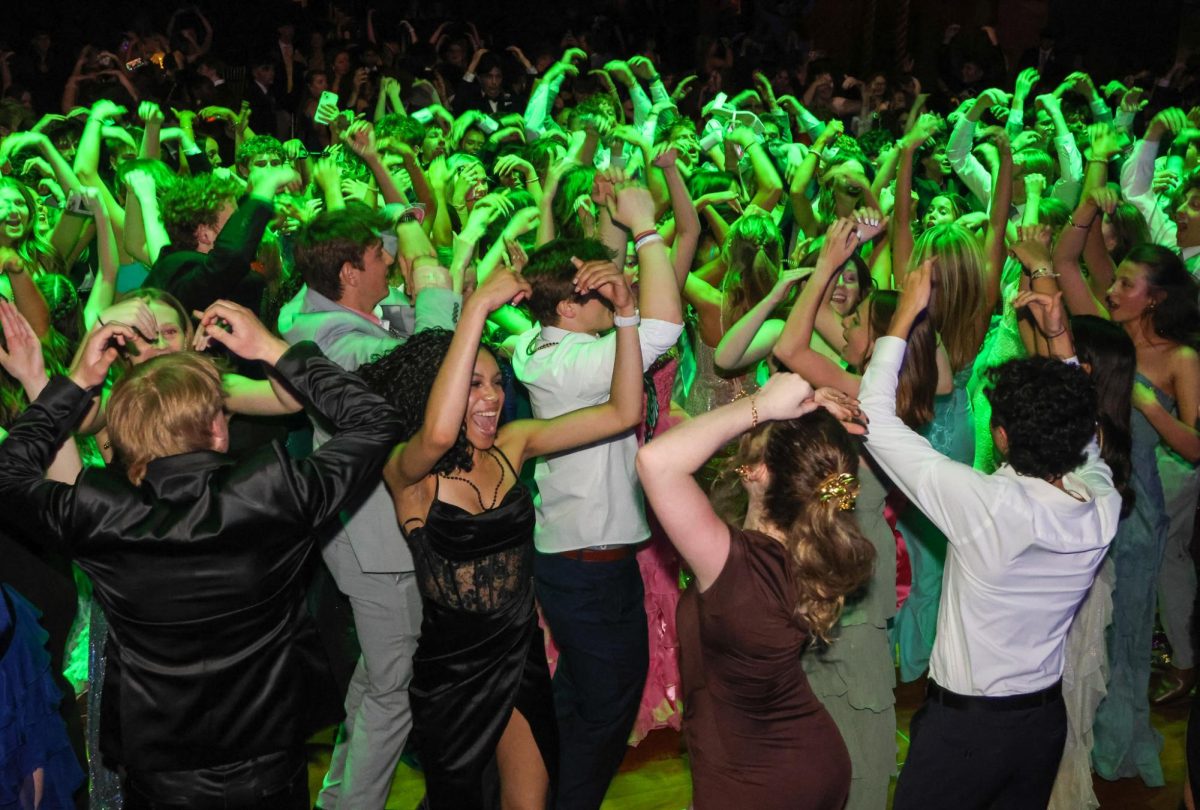Schoolwide and nationwide surveys find lack of knowledge about the Constitution
21 percent of students surveyed could not name any First Amendment freedoms
By Andrew Tow
In AP U.S. History on Friday, Oct. 6, junior Eric Niewohner takes notes after his test over the Constitution. “It is important for students to know the Constitution because it helps you understand your basic rights in America,” Niewohner said.
October 18, 2017
According to government regulations, every student in a public school must learn the Constitution in high school. However, a recent study conducted by the University of Pennsylvania’s Annenberg Public Policy Center found that 37 percent of people do not know a single freedom guaranteed to them by the First Amendment. This statistic is lower at Mill Valley, with 21 percent of 228 students surveyed unable to name any of their First Amendment rights, there is a substantial lack of knowledge about the Constitution.
Constitutional law professor Stephen McAllister of the University of Kansas said via email that he finds these results “disappointing and disheartening, but not really surprising.”
“In a society that now relies so heavily on sound bites and social media for its ‘news,’ and where everyone, whether informed or not, can be a commentator and an ‘authority’ over the internet [these results could occur],” McAllister said.
A lack of personal connection to the Constitution could lead to a lack of knowledge, according to social studies teacher Angie DalBello.
“Perhaps people are consumed by their own lives and social media and they just don’t pay attention to something that seems archaic and irrelevant,” DalBello said. “[And] more than ever it’s relevant to their lives.”
Senior Jameson Isaacsen, who was an active member of the former Political Discussion club, attributes the results to taking rights for granted.
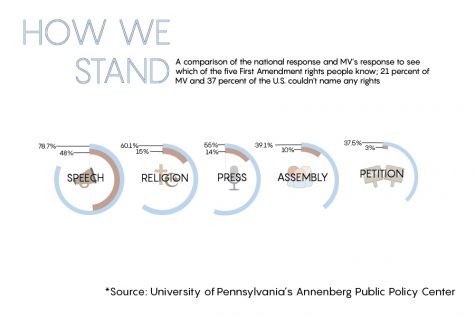
“I think [the results are] mostly due to the lack of attention [people] pay to the Constitution,” Isaacsen said. “Just assuming that they don’t really need to know them because [they are still protected under the Constitution].”
Junior Johannes Seberger believes that although knowing some of the Constitution is important, knowing the entirety is unessential.
“The beginning you should know, and the Bill of Rights that are a part of the Constitution you should know,” Seberger said.
McAllister disagrees, adding “people also may have preconceived… notions of their ‘Constitutional rights.’”
“They don’t necessarily want to know differently, preferring instead their own views,” McAllister said.
McAllister believes that understanding the Constitution makes a more informed public.
“Being knowledgeable about the Constitution helps all of us be more constructive and engaged citizens on a host of issues that our society faces,” McAllister said. “Awareness of individual rights also may help citizens recognize when they may have been wronged and … to stand up for their rights.”
DalBello reiterates the value of the Constitution in everyday life.
“What I want more than anything is for the students at this school and the students in these classes to care and pay attention,” DalBello said. “This is our lives. This is important.”



